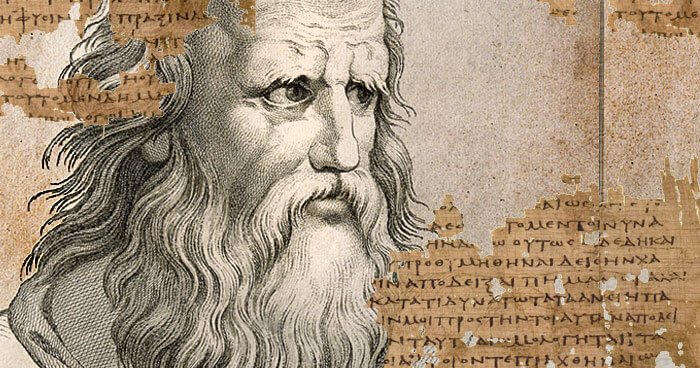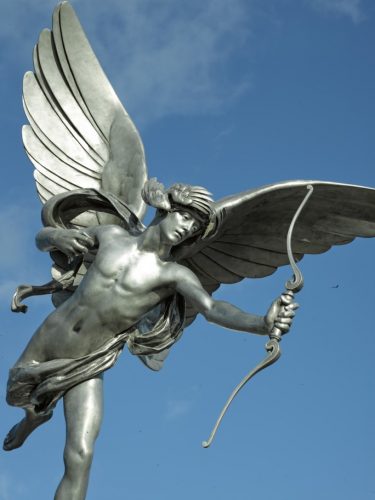Postgraduate and Postdoctoral Work-in-Progress Seminar
On Monday 25 January Margaret Hampson presented her paper ‘Aristotle on the Nature of Habituation’.
More Info
The Plato Centre hosts many functions throughout the academic year on various topics related to Plato, his philosophy and his legacy. The scope of events that are hosted by the Centre range from highly sepcialized talks by scholars who are doing cutting–edge work in ancient and contemproary philosophy to public events centred around the relevancy of Platonic and Platonist philosophy to the issues and problems of today.
On Monday 25 January Margaret Hampson presented her paper ‘Aristotle on the Nature of Habituation’.
More InfoThe Weekly Reading Seminar meets on Fridays from 10am-12pm over Zoom. We are currently finishing Plato’s Statesman before turning to the Crito.
More InfoThis event was held on Saturday 8 and Sunday 9 May 2021.
More Info
Qingyun Cao, Yunnan University
Event Type Visiting Speaker Colloquium
Thursday 31 October 2019
Trinity Plato Centre Seimar Room 1937 Reading Room Trinity College Dublin

George Karamanolis
Event Type Annual Stephen MacKenna Lecture
Tuesday 14 May 2019
Mháirtin Ui Chadhain Theatre, Arts Builiding, Trinity College Dublin

Rodrigo Illarraga, University of Buenos Aires
Event Type Visiting Speaker Colloquium
Thursday 14 March 2019
Trinity Plato Centre Seminar Room 1937 Reading Room Trinity College Dublin
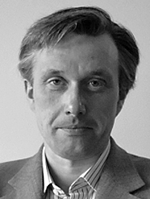
George Boys-Stones
Event Type Annual Stephen MacKenna Lecture
Monday 21 May 2018
Neill Lecture Theatre, Trinity Long Room Hub Building

Luciana Soares Santoprete, CNRS
Event Type Visiting Speaker Colloquium
Tuesday 5 June 2018
Trinity Plato Centre Seminar Room 1937 Reading Room Trinity College Dublin

Damian Caluori (Trinity University, Texas)
A close reading of a new translation and commentary.
Event Type Workshops
7-11 May 2018
Trinity Plato Centre Seminar Room Trinity Plato Centre Trinity College Dublin

Alexandrine Schniewind
Event Type Annual Stephen MacKenna Lecture
Wednesday 24 April 2017
Neill Lecture Theatre, Trinity Long Room Hub Building

Lucas Angioni, University of Campinas
Event Type Visiting Speaker Colloquium
Thursday 2 March 2017
Trinity Plato Centre Seminar Room 1937 Reading Room Trinity College Dublin

Christopher Noble, LMU Munich
Event Type Visiting Speaker Colloquium
Monday 15 February 2016
Room 5012 Arts Building Trinity College Dublin

Pauliina Remes
Event Type Annual Stephen MacKenna Lecture
Tuesday 12 April 2016
Synge Lecture Theatre, Arts Building, Trinity College Dublin

Luca Pitteloud, Federal University of ABC, São Paulo
Event Type Visiting Speaker Colloquium
Friday 22 January 2016
Trinity Plato Centre Seminar Room 1937 Reading Room Trinity College Dublin

Bert van den Berg, University of Leiden
Event Type Visiting Speaker Colloquium
Friday 5 February 2016
Trinity Plato Centre Seminar Room 1937 Reading Room Trinity College Dublin

Nie Minli, Renmin University, Beijing
Event Type Visiting Speaker Colloquium
Monday 15 February 2016
Trinity Plato Centre Seminar Room 1937 Reading Room Trinity College Dublin

Paolo Fait, Oxford University
Event Type Visiting Speaker Colloquium
Friday 6 March 2015
Trinity Plato Centre Seminar Room 1937 Reading Room Trinity College Dublin

Dominic Scott, University of Kent
Event Type Visiting Speaker Colloquium
Friday 1 May 2015
Trinity Plato Centre Seminar Room 1937 Reading Room Trinity College Dublin

Joachim Gentz, University of Edinburgh
Event Type Visiting Speaker Colloquium
Tuesday 31 March 2015
Trinity Plato Centre Seminar Room 1937 Reading Room Trinity College Dublin

Apostolos Stavelas, Athens Academy
Event Type Visiting Speaker Colloquium
Friday 30 January 2015
Trinity Plato Centre Seminar Room 1937 Reading Room Trinity College Dublin

Peter Adamson
Event Type Annual Stephen MacKenna Lecture
Tuesday 7 April 2015
Neill Lecture Theatre, Long Room Hub Building

Blake Hestir, Texas Christian University
Event Type Visiting Speaker Colloquium
Friday 12 June 2015
Trinity Plato Centre Seminar Room 1937 Reading Room Trinity College Dublin
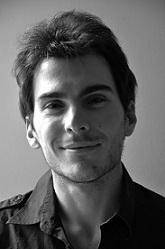
Nicolò Benzi, Trinity Plato Centre
Event Type Visiting Speaker Colloquium
Monday 16 November 2015
Trinity Plato Centre Seminar Room 1937 Reading Room Trinity College Dublin
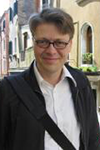
Leo Catana, Univrsity of Copenhagen
Event Type Visiting Speaker Colloquium
Wednesday 13 May 2015
Trinity Plato Centre Seminar Room 1937 Reading Room Trinity College Dublin

Randall Curren, University of Rochester
Event Type Visiting Speaker Colloquium
Monday 16 June 2014
Trinity Plato Centre Seminar Room 1937 Reading Room Trinity College Dublin

André Laks, Paris, Sorbonne (IV)
Event Type Visiting Speaker Colloquium
Monday 6 October 2014
Room 5012 Arts Building Trinity College Dublin
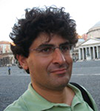
George Karamanolis, University of Crete
Event Type Visiting Speaker Colloquium
Friday 21 February 2014
Trinity Plato Centre Seminar Room 1937 Reading Room Trinity College Dublin

Fiona Leigh, University College London
In this workshop the chair, Fiona Leigh, focused on Sophist 256-59: the account of negation and not-being.
Event Type Workshops
Tuesday 15 April 2014
Trinity Plato Centre Seminar Room 1937 Reading Room Trinity College Dublin

Adam Crager, Princeton University
Event Type Visiting Speaker Colloquium
Friday 17 May 2013
Trinity Plato Centre Seminar Room 1937 Reading Room Trinity College Dublin

Cesare Catà, Università di Macerata
Event Type Visiting Speaker Colloquium
Friday 3 May 2013
Trinity Plato Centre Seminar Room 1937 Reading Room Trinity College Dublin

Paul Kalligas
Event Type Annual Stephen MacKenna Lecture
Thursday 4 April 2013
Neill Lecture Theatre, Long Room Hub Building

Mary Margaret McCabe, King’s College London
Event Type Visiting Speaker Colloquium
Friday 29 November 2013
Trinity Plato Centre Seminar Room 1937 Reading Room Trinity College Dublin

Catherine Rowett, University of East Anglia
Event Type Visiting Speaker Colloquium
Monday 4 February 2013
Trinity Plato Centre Seminar Room 1937 Reading Room Trinity College Dublin
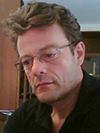
Panos Dimas, University of Oslo
Event Type Visiting Speaker Colloquium
Friday 19 April 2013
Trinity Plato Centre Seminar Room 1937 Reading Room Trinity College Dublin

Benoît Castelnérac, Univesite de Sherbrooke
Event Type Visiting Speaker Colloquium
Friday 10 May 2013
Trinity Plato Centre Seminar Room 1937 Reading Room Trinity College Dublin

John Bremer, Institute of Philosophy
Event Type Visiting Speaker Colloquium
Friday 18 October 2013
Trinity Plato Centre Seminar Room 1937 Reading Room Trinity College Dublin

Joachim Aufderheide, King’s College London
Event Type Visiting Speaker Colloquium
Wednesday 6 February 2013
Trinity Plato Centre Seminar Room 1937 Reading Room Trinity College Dublin

Christopher Shields, Oxford University
Event Type Visiting Speaker Colloquium
Friday 25 October 2013
Trinity Plato Centre Seminar Room 1937 Reading Room Trinity College Dublin
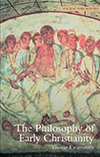
George Karamanolis, University of Crete
George Karamanolis led a close reading of his new manuscript.
Event Type Workshops
Friday 30 November – Saturday 1 December 2013
Trinity Plato Centre Seminar Room 1937 Reading Room Trinity College Dublin

Tom Angier, University of Kent
Event Type Visiting Speaker Colloquium
Friday 9 March 2012
Trinity Plato Centre Seminar Room 1937 Reading Room Trinity College Dublin

Arnis Ritups, Leuven
Event Type Visiting Speaker Colloquium
Friday 17 February 2012
Trinity Plato Centre Seminar Room 1937 Reading Room Trinity College Dublin

Dominic Scott, University of Virginia
Event Type Visiting Speaker Colloquium
Wednesday 24 October 2012
Trinity Plato Centre Seminar Room 1937 Reading Room Trinity College Dublin

Damian Caluori, Trinity University, Texas
Event Type Visiting Speaker Colloquium
Tuesday 12 June 2012
Trinity Plato Centre Seminar Room 1937 Reading Room Trinity College Dublin

Jan Opsomer
Event Type Annual Stephen MacKenna Lecture
Tuesday 20 March 2012
Neill Lecture Theatre, Long Room Hub Building

Gail Fine, Oxford University and Cornell University
Event Type Visiting Speaker Colloquium
Wednesday 23 March 2011
Trinity Plato Centre Seminar Room 1937 Reading Room Trinity College Dublin
Robert Zaborowski, University of Warmia and Mazury
Event Type Visiting Speaker Colloquium
Friday 30 September 2011
Trinity Plato Centre Seminar Room 1937 Reading Room Trinity College Dublin

Catherine Rowett, University of East Anglia
Event Type Visiting Speaker Colloquium
Friday 14 January 2011
Trinity Plato Centre Seminar Room 1937 Reading Room Trinity College Dublin

Michael Erler
Event Type Annual Stephen MacKenna Lecture
Tuesday 12 April 2011
Neill Lecture Theatre, Long Room Hub Building

John Bremer, Institute of Philosophy
Event Type Visiting Speaker Colloquium
Friday 28 October 2011
Trinity Plato Centre Seminar Room 1937 Reading Room Trinity College Dublin
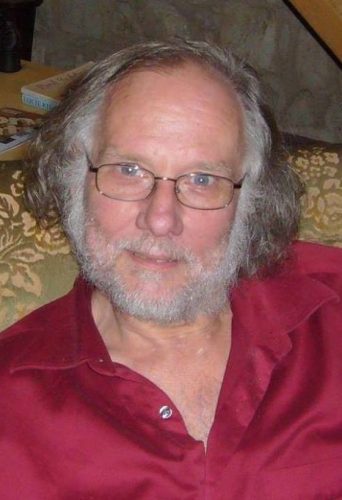
Robert J. Hankinson, University of Texas, Austin
Event Type Visiting Speaker Colloquium
Friday 21 May 2010
Trinity Plato Centre Seminar Room 1937 Reading Room Trinity College Dublin
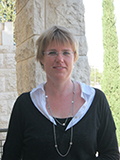
Wiebke-Marie Stock, Free University Berlin
Event Type Visiting Speaker Colloquium
Wednesday 12 November 2010
Trinity Plato Centre Seminar Room 1937 Reading Room Trinity College Dublin

Satoshi Ogihara, Tohoku University
Event Type Visiting Speaker Colloquium
Friday 12 February 2010
Trinity Plato Centre Seminar Room 1937 Reading Room Trinity College Dublin

Tim Crowley, University College Dublin
Event Type Visiting Speaker Colloquium
Friday 23 April 2010
Trinity Plato Centre Seminar Room 1937 Reading Room Trinity College Dublin
Robert Zaborowski, University of Warmia and Mazury
Event Type Visiting Speaker Colloquium
Monday 4 October 2010
Trinity Plato Centre Seminar Room 1937 Reading Room Trinity College Dublin

Harold Tarrant, University of Newcastle
Event Type Visiting Speaker Colloquium
Wednesday 18 February 2009
Trinity Plato Centre Seminar Room 1937 Reading Room Trinity College Dublin
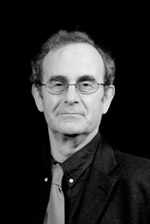
Christopher Rowe
Event Type Annual Stephen MacKenna Lecture
Friday 23 January 2009
Robert Emmet Theater, Arts Building, Trinity College Dublin

Ugo Zilioli, Trinity Plato Centre
Event Type Visiting Speaker Colloquium
Friday 20 February 2009
Trinity Plato Centre Seminar Room 1937 Reading Room Trinity College Dublin

Tim Crowley, University College Dublin
Event Type Visiting Speaker Colloquium
Friday 14 November 2008
Trinity Plato Centre Seminar Room 1937 Reading Room Trinity College Dublin

Richard King, University of Glasgow
Event Type Visiting Speaker Colloquium
Friday 21 November 2008
Trinity Plato Centre Seminar Room 1937 Reading Room Trinity College Dublin
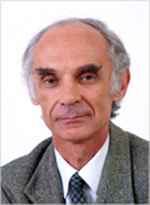
Event Type Annual Stephen MacKenna Lecture
Friday 30 April 2004
Classics Seminar Room, Arts Building, Trinity College Dublin
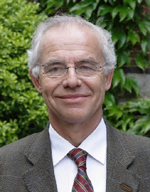
Carlos Steel
Event Type Annual Stephen MacKenna Lecture
Thursday 7 November 2002
Mháirtin Ui Chadhain Theatre, Arts Building, Trinity College Dublin

John Rist
Event Type Annual Stephen MacKenna Lecture
Friday 26 January 2001
Room 5052, Arts Building, Trinity College Dublin

Werner Beierwaltes
Event Type Annual Stephen MacKenna Lecture
Friday 22 October 1999
Royal Irish Academy, Dawson Street, Dublin 2
One of the main pillars of the Trinity Plato Centre has been its commitment to bringing ancient philosophy, in general, and the philosophy of Plato, in particular to the wider community. This commitment has been carried out through a number of initiatives over the years.
On 4 November 2014, the Trinity Plato Centre together with Senator Marie-Louise O’Donnell hosted a debate exploring the role of Seanad Éireann.
The unique event employed Plato’s concept of Philosopher Kings to address key issues in the debate on the role of the Seanad.
The lecture, conducted by Emeritus Professor of Greek, John Dillon, and Dr David Horan, of the Trinity Plato Centre presented Plato’s ideas about what constitutes a state as well as his views of public responsibility, which argue that people need to change their way of thinking if they want a different type of Oireachtas.
The aim of the gathering, which was suggested by Professor Marie-Louise O’Donnell, was that the philosophy of Plato should meet the contemporary politics of Ireland. Politics would thus be inspired and invigorated by philosophy while philosophy, for its part, would be made to descend from its ivory tower and engage with the realities of modern Irish life.
Our primary vehicle for engaging with the public is through our Annual Stephen MacKenna Lecture. This event, which is named in commemoration of the great Irish translator of Plotinus and is designed to honor distinguished contemporary scholars working in the field of Plato and the Platonic tradition is aimed at engaging the wider public through lectures that combine rigorous historical scholarship with a sensitivity to contemporary issues.
